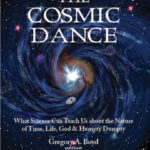We run our website the way we wished the whole internet worked: we provide high quality original content with no ads. We are funded solely by your direct support. Please consider supporting this project.

Support for Open Theism from Science and Experience
I have discussed the scriptural support that depicts the future as partially open and that God knows it as such. I do this in God of the Possible.
If a position is true, every avenue of reflection ought to point in its direction, including science. What follows are two more “pointers” to the view that the future is at least partly open (indefinite, composed of possibilities). I’ll first consider an argument from quantum physics, followed by a pragmatic argument regarding what we ordinarily assume to be true in our actions.
Quantum physics suggests that Einstein was mistaken in his classical-philosophical conclusion that the distinction between the past, present and future is an illusion. Nothing short of an empirically groundless, metaphysically mechanistic assumption kept him, and some other physicists, from affirming that the apparent indeterminacy of reality at a quantum level is in fact real (viz. ontological).
But this means that time is real and thus that the “apparent” distinction between the past as a realm of definite realities and the future as a realm of indefinite probabilities is real. Prior to a “quantum event” (viz. the observed behavior of a quantum particle in an experimental situation) there is only a range (“wave packet”) of possibilities: during the quantum event the wave packet collapses down to one. After “the event” there is one definite outcome, which could not have been predicted with certainty ahead of time.
If this is true of reality, it must be true of God’s knowledge of reality as well, for God’s omniscience is by definition exhaustive and perfectly accurate. In this view, the unpredictability of the future and the unchangeability of the past constitute two sides of the same metaphysical coin: they are both necessary facts. Scientist-theologian John Polkinghorne summarizes this well in his book Science and Providence when he notes that considerations of the role of indeterminacy in quantum physics:
… emphasize how different time is from space [and] how seriously we must take its unfolding as a process of genuine becoming. The future is not already formed ahead of us, waiting to reveal itself to our exploration, as the fixed contours of a valley reveal themselves to the traveler who makes his ways through them. The future is in part our creation: its shape is responsive to our molding, as the clay is formed by the sculptor to create his irreducibly new thing, which is his work of art. If even the omnipotent God cannot act to change the past, it does not seem any more conceivable that the omniscient God can know with certainty the unformed future.
It could be argued that science is forever changing and thus what seems like a certain conclusion today might be revised by new discoveries tomorrow. True enough. Too much should not be wagered on the vicissitudes of scientific discovery. At the same time, we can’t ignore the findings of science on this account. At the very least, any who would want to continue to hold to the eternal definiteness of the future (in the mind of God) and thus to the non-ontological nature of quantum indeterminacy must now bear the scientific burden of proof.
The second pointer arises from our common experience related to what we assume to be true in our daily life. The contemporary quantum physical paradigm of reality is reinforced by our common experience. Indeed, I would argue that the complementarity of determinacy and indeterminacy is a metaphysical principle, and thus is universally instantiated. Every event seems to exemplify it. From quantum particles to molecular structures and from the behavior of single-celled organisms to the spontaneous movements of insects, birds and mammals, including human beings, we find a dimension of individual indeterminacy within a broader parameter of determinacy. Sociology has taught us, for example, that group behavior is remarkably predictable, though the behavior of any individual within a group is not. So it is with most animal behavior.
This suggests that the indeterminacy we observe in quantum physics is not illusory: it is ontological. As humans, we assume this conclusion in all our behavior. Philosophical or theological determinists may believe that reality is exhaustively predetermined, but they cannot consistently behave according to this conviction. We all must live as if the future (in contrast to the past) is partly indefinite and partly definite. Exhaustive determinism (as well as exhaustive indeterminism) are both doctrines that cannot be lived out in our experience.
More specifically, every self-determining decision we make assumes that we believe things really hang upon what we do. But every self-determining decision we make also presupposes that many if not most things about tomorrow are fixed. We assume, for example, that the laws of nature shall not change. The earth and sun shall remain roughly the same tomorrow as they were today. The character of people I know shall remain more or less the same tomorrow as it is today, etc.
Thus, if the future was totally fixed, we could not think and act in a self-determining fashion. If the future was totally open, however, we again could not think and act in a self-determining fashion. Yet we do think and act in a self-determining fashion. Hence we evidently assume that the future is in reality partly indefinite and partly definite. And in doing so, I argue, we are simply acting consistently with the truth about everything insofar as we can know it. Determinacy and indeterminacy are complementary principles.
Image by wwward0 via Flickr.
Category: General
Tags: Determinism, Einstein, Open Theism, Polkinghorne, Science
Topics: Defending the Open View
Related Reading

Podcast: Does the Cruciform Hermeneutic Sabotage Open Theism?
Greg plays Peek-a-Boo with God and considers whether those verses Open Theists use to support Open Theism might simply be times when God is accommodating for us. http://traffic.libsyn.com/askgregboyd/Episode_0236.mp3

What is the significance of 1 Chronicles 21:7–13?
The Lord gives David three options of how Israel may be judged. “Three things I offer you; choose one of them, and I will do it to you.” Paralleling 2 Samuel 24:12–16, this passage reveals that the Lord gives people genuine alternatives and then responds to their choices. If the future is unalterably settled in…

Roger Olson’s Review of The Cosmic Dance
Today we wanted to share a review of The Cosmic Dance by esteemed theologian Roger Olson. You can check out an excerpt below or you can read the whole review here. You can place an order for The Cosmic Dance here. The Cosmic Dance is Greg’s (and friends’) attempt to present the case that the best contemporary science supports viewing…

How do you respond to John 21:18–19?
Jesus says to Peter, “‘[W]hen you were younger, you used to fasten your own belt and to go wherever you wished. But when you grow old, you will stretch out your hands, and someone else will fasten a belt around you and take you where you do not wish to go.’ (He said this to…

Free Will in the Bible
Scripture portrays humans as having minds and wills of their own. They are, in a real (though limited) sense, creators of their own behavior and determiners of their own destinies—whether this behavior and destiny is in line with God’s will or not. This fundamental assumption is demonstrated in a variety of ways throughout Scripture. It…
